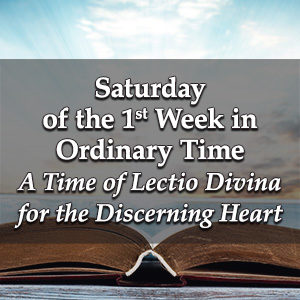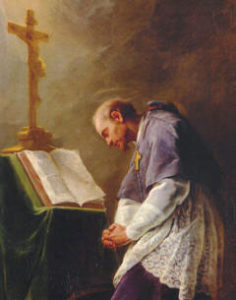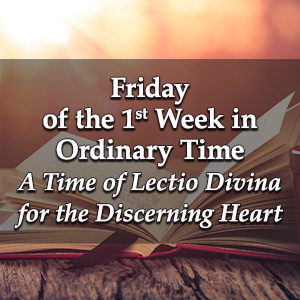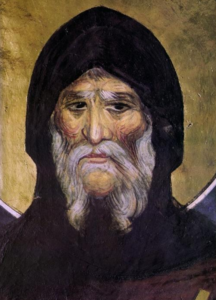Podcast: Play in new window | Download (Duration: 9:58 — 7.0MB) | Embed
Subscribe: Apple Podcasts | Spotify | Amazon Music | Android | Pandora | iHeartRadio | JioSaavn | Podchaser | Gaana | Podcast Index | Email | TuneIn | Deezer | Anghami | RSS | More
Monday of the Second Week in Ordinary Time – A Time of Lectio Divina for the Discerning Heart Podcast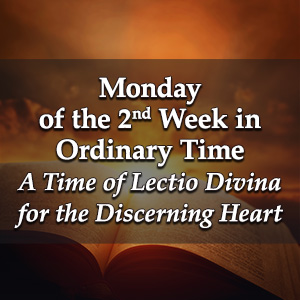
As you begin, take a deep breath and exhale slowly. For at least the next few moments, surrender all the cares and concerns of this day to the Lord.
Say slowly from your heart “Jesus, I Trust In You…You Take Over”
Become aware that He is with you, looking upon you with love, wanting to be heard deep within in your heart…
From the Holy Gospel of St. Mark 2:18-22
One day when John’s disciples and the Pharisees were fasting, some people came to Jesus and said to him, ‘Why is it that John’s disciples and the disciples of the Pharisees fast, but your disciples do not?’ Jesus replied, ‘Surely the bridegroom’s attendants would never think of fasting while the bridegroom is still with them? As long as they have the bridegroom with them, they could not think of fasting. But the time will come for the bridegroom to be taken away from them, and then, on that day, they will fast. No one sews a piece of unshrunken cloth on an old cloak; if he does, the patch pulls away from it, the new from the old, and the tear gets worse. And nobody puts new wine into old wineskins; if he does, the wine will burst the skins, and the wine is lost and the skins too. No! New wine, fresh skins!’
What word made this passage come alive for you?
What did you sense the Lord saying to you?
Once more give the Lord an opportunity to speak to you:
One day when John’s disciples and the Pharisees were fasting, some people came to Jesus and said to him, ‘Why is it that John’s disciples and the disciples of the Pharisees fast, but your disciples do not?’ Jesus replied, ‘Surely the bridegroom’s attendants would never think of fasting while the bridegroom is still with them? As long as they have the bridegroom with them, they could not think of fasting. But the time will come for the bridegroom to be taken away from them, and then, on that day, they will fast. No one sews a piece of unshrunken cloth on an old cloak; if he does, the patch pulls away from it, the new from the old, and the tear gets worse. And nobody puts new wine into old wineskins; if he does, the wine will burst the skins, and the wine is lost and the skins too. No! New wine, fresh skins!’
What did your heart feel as you listened?
What did you sense the Lord saying to you?
Once more, through Him, with Him and in Him listen to the Word:
One day when John’s disciples and the Pharisees were fasting, some people came to Jesus and said to him, ‘Why is it that John’s disciples and the disciples of the Pharisees fast, but your disciples do not?’ Jesus replied, ‘Surely the bridegroom’s attendants would never think of fasting while the bridegroom is still with them? As long as they have the bridegroom with them, they could not think of fasting. But the time will come for the bridegroom to be taken away from them, and then, on that day, they will fast. No one sews a piece of unshrunken cloth on an old cloak; if he does, the patch pulls away from it, the new from the old, and the tear gets worse. And nobody puts new wine into old wineskins; if he does, the wine will burst the skins, and the wine is lost and the skins too. No! New wine, fresh skins!’
What touched your heart in this time of prayer?
What did your heart feel as you prayed?
What do you hope to carry with you from this time with the Lord?
Our Father, who art in heaven,
hallowed be thy name.
Thy kingdom come.
Thy will be done on earth, as it is in heaven.
Give us this day our daily bread,
and forgive us our trespasses,
as we forgive those who trespass against us,
and lead us not into temptation,
but deliver us from evil.
May the Lord bless us, and keep us from all evil, and bring us to everlasting life.
Amen
Excerpt from THE JERUSALEM BIBLE, copyright (c) 1966 by Darton, Longman & Todd, Ltd. and Doubleday, a division of Penguin Random House, Inc. Reprinted by Permission.

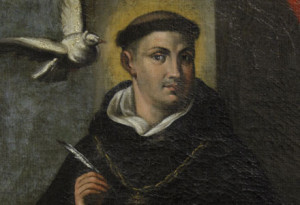
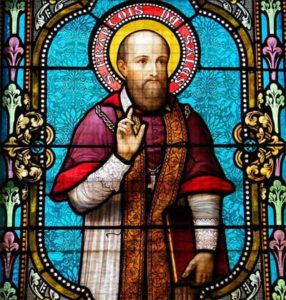 St. Francis de Sales Novena – Day 6
St. Francis de Sales Novena – Day 6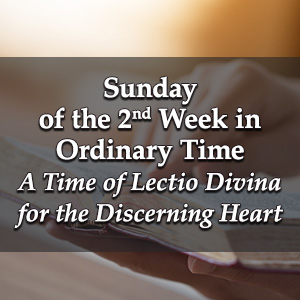
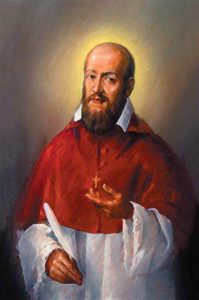 St. Francis de Sales Novena – Day 5
St. Francis de Sales Novena – Day 5